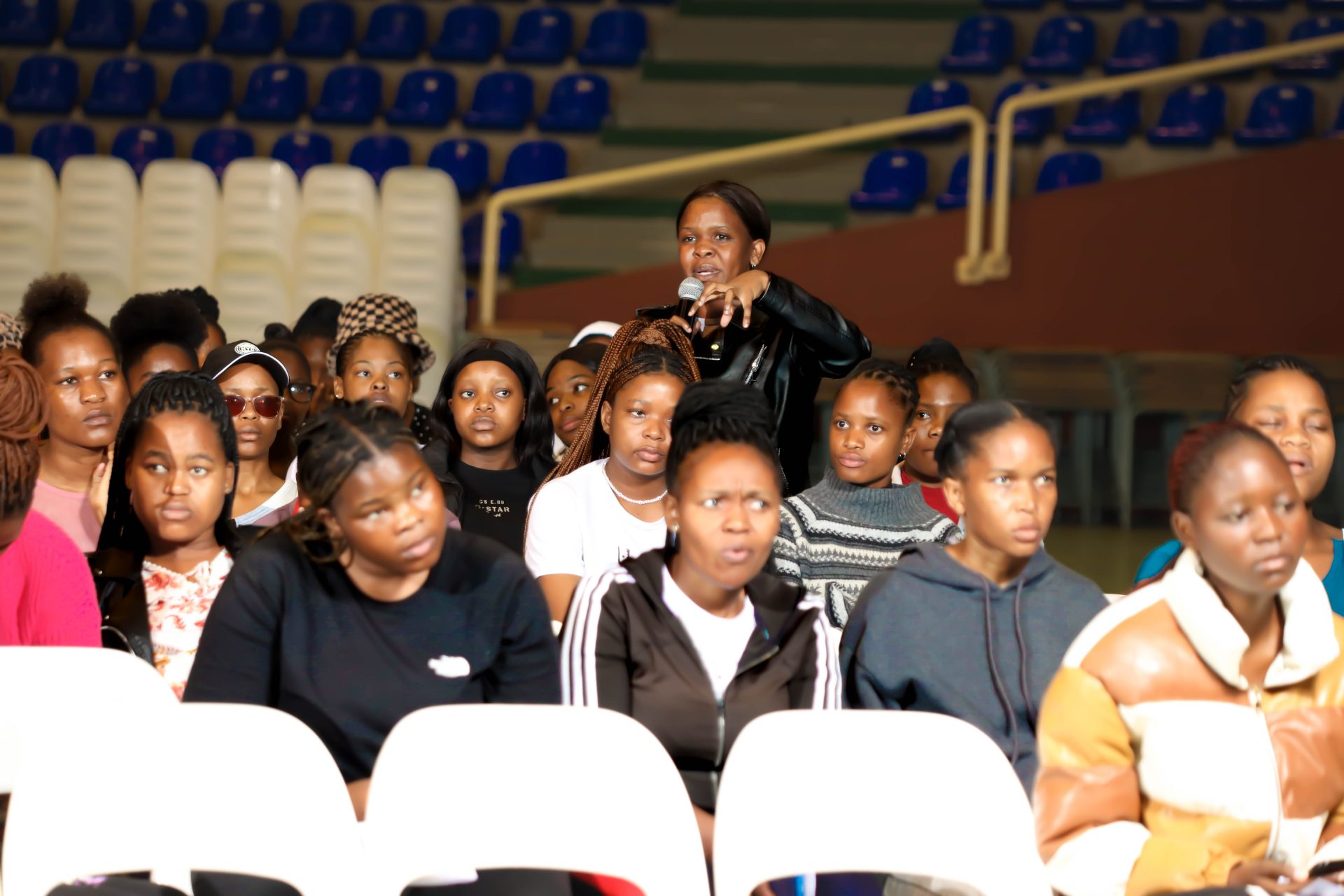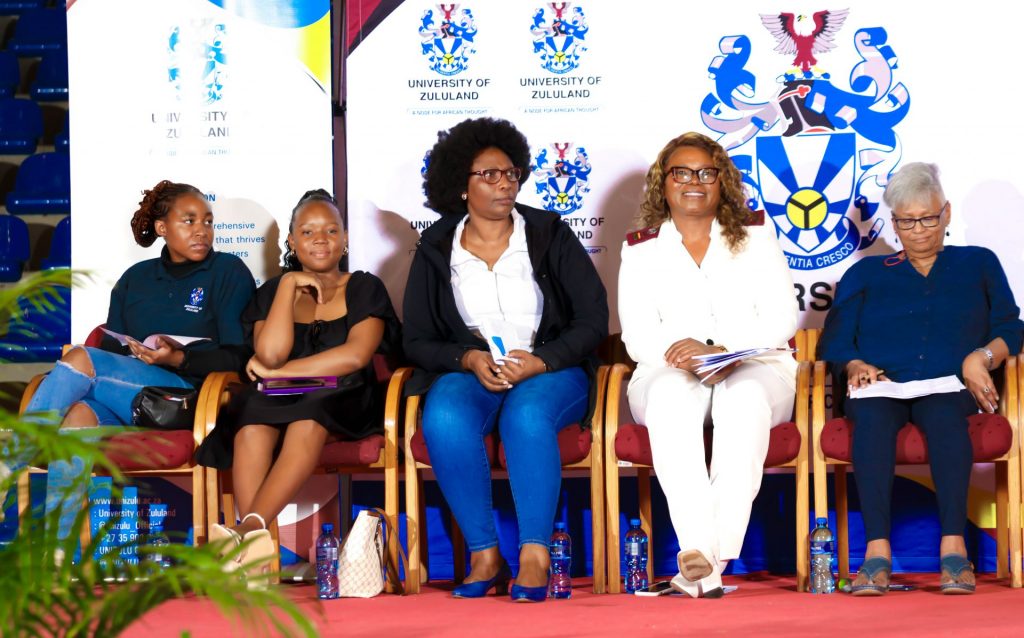Spotlight on Sexual Reproductive Health During Women Empowerment Workshop

The Pastoral Care Unit, in collaboration with the Transformation Office and Campus Health Clinic, recently held a fruitful imbizo for University of Zululand (UNIZULU) female students which sought to impart to the young women knowledge on sexual reproductive health and related issues.
The seminar took place at KwaDlangezwa Campus’s King Bhekuzulu Hall, attracting a lively and attentive crowd of just over 200 students.
Background
Teenage pregnancy, gender-based violence (GBV) and HIV/AIDS are prevalent societal issues in Africa which continue to threaten the realisation of demographic dividend in the continent, according to a concept note by the event organisers. The International Monetary Fund describes demographic dividend as a state where the population of a country has a low fertility and mortality rate. This entails a smooth demographic transition from a “largely rural agrarian society with high fertility and mortality rates to a predominantly urban industrial society with low fertility and mortality rates”. Fewer births mean fewer young mouths to feed. This leads to the labor force temporarily growing more rapidly than the population dependent on it, freeing up resources for investment in economic development and family welfare.
The organisers further state in the concept note that due to the said societal threats, young people in the continent, particularly girls, face multiple challenges that limit their access to education and hinder their ability to participate in the economy.
Seminar
Cognisant of the sexual dynamics in the higher education environment, the organizing team deemed it prudent to increase female students’ knowledge and understanding of sexual reproductive health, to help minimise their exposure to ills such as GBV, HIV contraction and illegal abortions.
Thus, the seminar aimed to remove barriers in accessing contraception and sexual reproductive health services; showcase the array of relevant sexual and reproductive health services available within UNIZULU and countrywide; engage with young females to share their local challenges in accessing contraception and STI treatment; and promote safe sex and healthy lifestyles.

The programme included a panel of expert speakers who presented on various topics related to the theme. Each speaker was succeeded by a student respondent, followed by robust question-and-answer sessions.
Sma Mnqayi, a medical professional, shared her extensive knowledge on sexual and reproductive health and constitutional rights, focusing on reproduction, family planning (contraceptives), pregnancy and termination of pregnancy. One of the key points she mentioned was that a successful pregnancy for human beings is a responsibility which requires both parents to be healthy and financially stable. Beyond this, the parents need to be prepared for the long-term responsibility of raising their offspring. In this way, she encouraged the female students to avoid unwanted pregnancies by practicing safe sex.
Mnqayi was followed by the animated, expressive Mfundo Magoso who unpacked the topic of sex negotiation. Magoso is lecturer in the UNIZULU Department of Nursing Science. His goal was to simply shed light on the various circumstances that may lead to either a man or woman failing to negotiate safe sex. “Why do we negotiate sex? It helps us to stick to safer sex philosophy. It helps us to ensure consistency in practising safe sex, thereby reducing unplanned pregnancy and STIs. It also strengthens relationships. It also prevents people from going to jail,” he explained.
He advised the students to apply the traffic light system whenever they negotiate sex – green meaning they are willing to engage in a sexual activity, orange meaning they want to clarify certain issues such as their partner’s HIV status, and red meaning they are not willing to engage in the sexual activity.
Going through the factors that hinder effective sex negotiation, he counted a huge age gap, financial dependency on a partner, culturally defined marital obligations, and blackmail. He concluded his presentation by naming the different categories of sexual preferences to make the students aware when violence during sex is considered abnormal.
The last expert speaker was Dr Delarise Malqueeny, citizen therapist, HIV activist, motivational speaker, and author. She made the students aware of the dangers of illegal abortions.
- Naledi Hlefane













